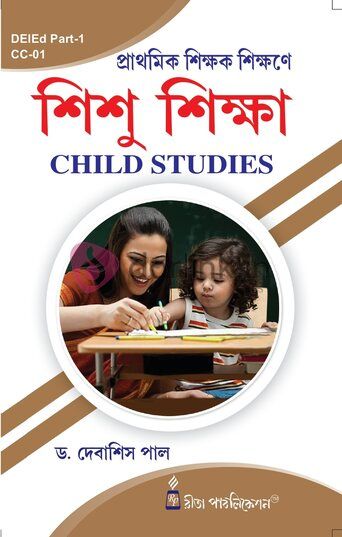Writer : Dr. Debashis Paul
- Shipping Time : 4 Days
- Policy : Return/Cancellation?
You can return physically damaged products or wrong items delivered within 24 hours with photo/video proof.
Contact Customer Support for return initiation and receive return authorization via email. Securely package for return.
Refunds for eligible returns are processed within 7-10 business days via Bank Transfer.
Order cancellation allowed within 24 hours of placing it. Standard policy not applicable for undamaged/wrong product cases. Detailed info. - Genre : Career Courses>D.El.Ed / B.Ed. / M.Ed.
- Publication Year : NA
- ISBN No : NA
- Binding : No Binding Available
- Pages : NA
- Weight : NA
- Height x Width x Depth : xx Inch
About the Book
1. Syllabus:
Unit-1: Perspectives in Development
· Introduction to perspectives in development — Concept of development (meaning, principles and objectives).
· Development as multidimensional and plural
· Development through the life span (stages)
· Developmental ways as continuous and discontinuous.
· Childhood as modern construct (knowledge- creator) in the context of poverty, globalization and modern culture
· Commonalities and diversities within the notion of childhood with reference to Indian context
Unit-2: Physical-Motor Development
· Growth and Maturation
· Gross and fine motor development skills in infancy, pre-school children and elementary children
· Role of parents and teachers in providing opportunities for physical-motor development, for example, play.
Unit-3: Social Development
· Concept of socialization: Family environment, Parent-child relationships, Child rearing practices
· Separation of parents : Children in creches, orphanages etc.
· Schooling: peer influences, Teacher-child relationships, out of school experiences
· Development of children through socialization process
· Personality development— Freudian stages of development
· Psycho-social development— stages as proposed by Erikson
· Social theories and Gender development-meaning of gender roles, influences of gender roles, stereotypes and gender in playground
Unit-4: Self and Moral development
· A sense of self : Self-description, self-concept, self-esteem, social comparison, internalization and self-control
· Moral development : perspectives of Lawrence Kohlberg
Unit-5: Emotional Development
· Development of emotions and ability to regulate them (Love, affection, fear, anger, jealousy etc.)
· Development of emotions at different stages (pre-school, late childhood and pubertal stages)
· Development of emotions as continuous and discontinuous
Unit-6: Learning
· Learning : Concept of learning (meaning, principles and objectives) basic theories of learning
· Learning : ideas of behaviorism
· Basic architecture of the mind (working memory, long term memory, attention, encoding and retrieval)
Unit-7: Cognition
· Constructivism: introduction to the concept, Piaget’s theory: what is learning, structures and processes of cognitive development, children’s thinking, and implications for teaching learning.
· Vygotsky’s theory—introduction, the general genetic law, concept of zone of proximal development tools and symbols in development, implications for teaching.
· Individual and socio-cultural differences in cognition understanding learning difficulties, terms of exclusion and inclusion and impact.
Unit-8: Play
· Meaning of Play: Characteristics, kinds and types of Play
· Functions of Play: Linkages with the physical, social, emotional, language, cognitive and motor development of children
· Cross Cultural & Socio-Economic differences in children’s play
· Games and group dynamics, rules of games and how children learn to negotiate differences and resolve conflict.
Unit-9: Language
· Perspectives in Language development (with reference to how children acquire language at early age) : Skinner, Social Learning Theory of Bandura and Walters
· The use of Language : Turn taking, interaction, conversations and listening
· Bilingual or Multilingual children: Implications for teachers, multilingual classrooms, storytelling as a pedagogic tool
Unit-10: Communication
· How do children communicate?
· Socio-cultural variations in Language: Accents, difference in communication for a multilingual classroom.

